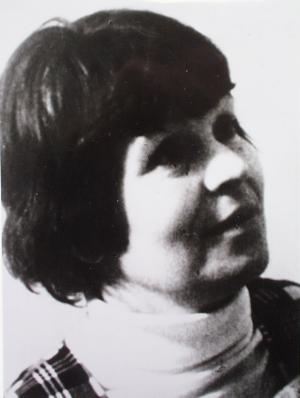M&V On-line News
| |

Galina Ustvolskaya.
Photo courtesy of Boosey & Hawkes |
|
A Russian invasion of the UK gets off to a flying start at the Royal Academy
of Music in London on 26 January. Dreams and Reflections, a four-day
festival featuring 200 years of Russian music will be centred on composer
Galina Ustvolskaya, one time close friend and favoured pupil of Dmitri Shostakovich.
So high was Dmitri Dmitriyevich's regard for her talent that he presented
her with several of his manuscripts and used themes from her music in his
compositions. Now in her 80th year, she has been described as 'a composer
like no other'. Her works usually have a religious context. |
|
The festival developed from two main sources: Paul Patterson's Contemporary
Music Festivals at the RAM which have featured composers such as Messiaen,
Ligeti and Lutoslawski; and a request to Russian music expert Gerard McBurney
to present ideas for concerts to introduce lesser-known and unusual repertoire
to the students. Input was received from the Principal Curtis Price – whose
idea it was to feature Ustvolskaya –, fellow professionals and students.
The end result is Dreams and Reflections running from 26 - 29 January.
As an academic studies lecturer, McBurney takes a course on 20th-century
Soviet music for 3rd and 4th year students. His enthusiasm for Russian music
stems from the time when he was a private pupil of pianist Susan Bradshaw.
'In the late 60's she was the first UK professional to show an interest
in contemporary Russian composers', he reminisces. 'She commissioned a piano
duet from Denisov for herself and Richard Rodney Bennett. I met Schnittke
in her house'.
McBurney has family connections in Russia and studied with Roman Ledenyov
at the Moscow Conservatoire in the early 80's. The Russian connection is
kept alive by 'a stream of British musicians studying there with government
scholarships'.
During the festival several composers will be in attendance to hear the
students perform this vast panoply of music:
Felix Yanov-Yanovsky is travelling from Uzbekistan where he is senior
composition teacher at the Conservatoire in Tashkent. Born in 1934, McBurney
describes him as an 'inspired, cultured man'. One concert will feature the
UK première of his Concerto Semplice.
Viktor Ekimovsky - a Muscovite - will hear the world première
of his Trumpets of Jericho. Written in 1970 for 30 brass instruments,
it was banned by the authorities. 'A mission of mine has been to get a performance
of the work in this country', says McBurney. Also present will be UK residents,
Smirnov and Vladislav Shoot. Smirnov's Set me as a seal ... will
be given its world première and Shoot's Epitaph will be given
its UK première (both on 27th).
The festival opens with a lunchtime concert in St. Marylebone Parish
Church with music by Glinka, Borodin and two late 18th-century serf composers:
Berezovsky and Bortniansky. Both were sent to Italy to study and so successful
was Berezovsky that he was able to buy his freedom on returning to Russia.
McBurney calls him 'the first freelance composer'.
'This did him no good at all', he goes on, 'as his music was black-balled!
He couldn't get paid as music was provided free by other serf composers'.
The evening concert on the 26th contains music by non-Jewish composers
such as Prokofiev, Shostakovich and Karetnikov based on Jewish klezmer
music which has played an important role in the musical tradition of the
country. The only Jewish composer represented will be Krein who led a revival
of Jewish music earlier this century. 'For Russians, Jewish music presents
a terrible history', remarks McBurney.
On the 27th, a programme of chamber music will feature music by Gubaidulina,
Stravinsky, Shoot, Ledenyov, Yanov-Yanovsky, and a Piano Quintet written
by Medtner when he was living in Hampstead.
The 28th is devoted to Ustvolskaya, and contains three UK premières
of her music.
The festival ends with two concerts: music written as memorials to Shostakovich,
Dylan Thomas, Stravinsky, Schnittke and Rubenstein; and the Royal Academy
Soloists performing works which include Pärt and Schnittke.
Running throughout the four days will be talks, discussions and films.
The latter includes Barrie Gavin's The Fire and The Rose: a portrait
of Sophia Gubaidulina and Giving Voice, where Russian composers discuss
tradition and the meaning of composition whereby a secret musical language
was developed conveying symbolism and political resistance.
Admission to all events is by ticket only. Tickets are free and available
from the RAM Box Office on +44 (0)171 873 7300 (Mon-Fri 10am-12pm; 2-3pm
GMT). www.ram.ac.uk
Watch this space for 'St Petersburg: Romance and Revolution' at the Barbican
Centre; and the Rachmaninov Festival on the South Bank.
Copyright © Shirley Ratcliffe, 25 January
1999
|